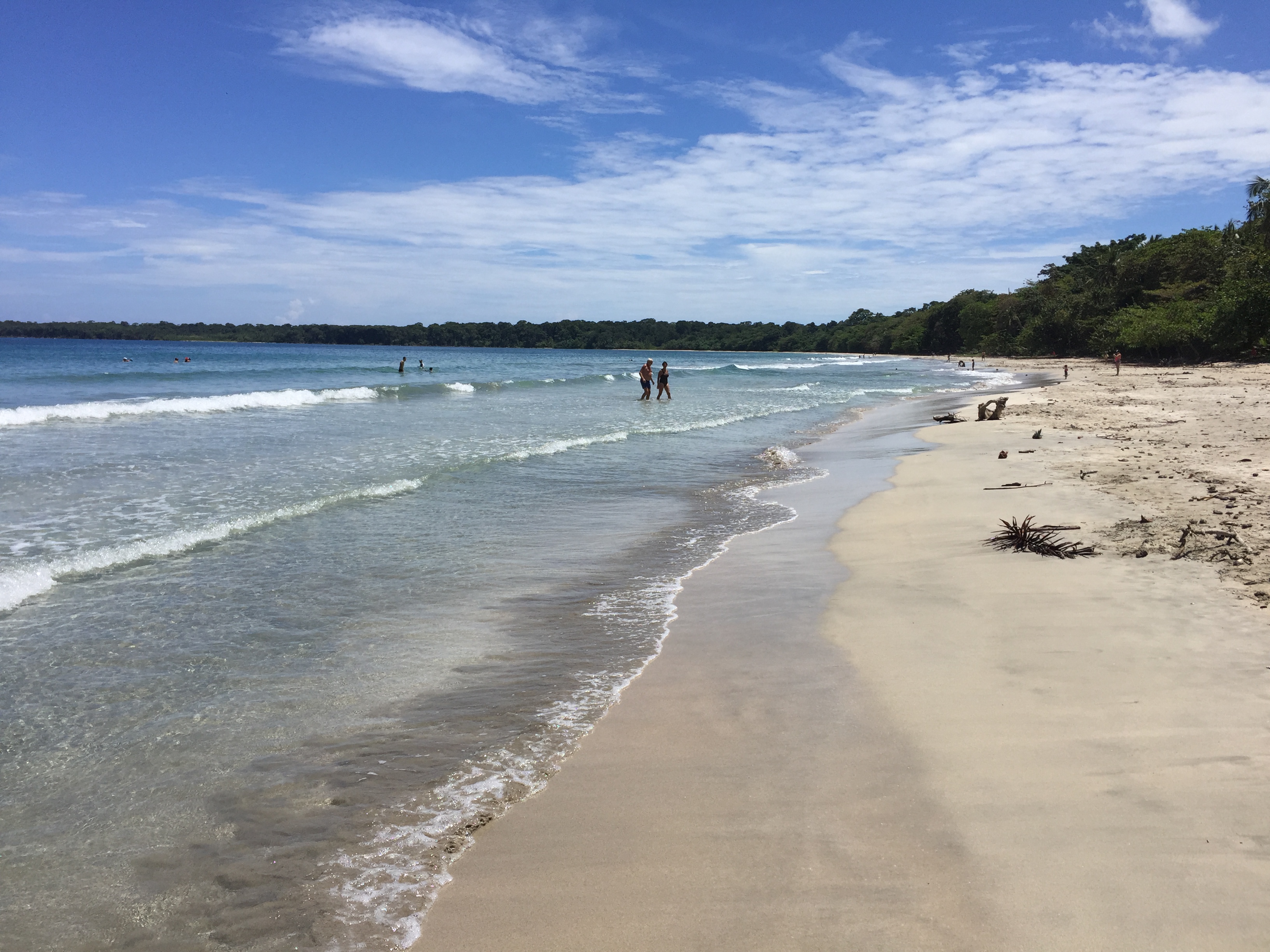10 Best Countries for Remote Work and Digital Nomads
If you’re dreaming of working somewhere else, since all you need is your laptop, here’s a look at the 10 best countries for digital nomads and remote workers. Taking into account things like visas, cost of living while you’re there, health & safety, what to do in your free time, and of course how easy it is to work (is the internet any good??), here are the 10 best options you should consider.
1 – Portugal
While there’s no specific “digital nomad visa”, the D7 visa and entrepreneur visa are both viable options for medium- and long-term stays. There’s no minimum amount of time required, but these visas are designed for those who want to stay over a year.
You’ll be allowed to open a bank account, rent a place to live, and the the income requirements for these visas in Portugal are much lower than neighboring EU countries.
Why Portugal? It has modern infrastructure and reliable internet in its cities, making remote work easy. And after a long period of economic decline, things are trending upward in a good way while housing prices (and availability) remain favorable. Plus, there’s a ton of history, beaches in the south, and the weather is never extreme.
2 – Romania
Romania passed a law for digital nomad visas and hopes to draw at least 2,000 remote workers this year. However, if you’re planning to stay less than 90 days, there are a full 50 countries from outside the EU that don’t need a visa for these short stays.
If you want to stay longer, you can fill out an online application here, rather than needing to go to an embassy. You’ll need to submit proof of work, such as a contract or your own company that is registered outside of Romania. You’ll also need a police background check and proof of healthcare that’s valid in Romania, plus 6 months of proof of income documents. The minimum monthly income is 3,300 euros, which is higher than countries like Spain and Croatia.
If you get a remote worker visa, it’s valid for a stay of one year.
Why Romania? For digital nomads and those doing remote work, Romania is a favorite on “best countries” lists because of its blazing-fast internet–the fastest in Europe. Combine that with a low cost of living, the Black Sea in the south, and mountains/Transylvania in the north, and you’ve got a pretty good combination. Plus, English is spoken widely among younger generations. Lastly, you don’t have to pay taxes on your income to the Romanian government.
3 – Mauritius
Mauritius offers a “Premium Visa” for foreigners who want to work remotely (or even long-stay tourists), allowing you to stay for a year. There’s even an option to renew the visa, which is available to citizens of 110 countries. The best part? It’s free! To qualify, you have to show that your income comes from outside Mauritius, submit a plan for your long stay, proof of healthcare, and you may be asked for bank statements to show whether you have sufficient funds to cover your expenses.
Why Mauritius? This idyllic island nation east of Madagascar, sitting in the Indian Ocean, was described like this by Mark Twain: “Mauritius was made first, and then heaven; and heaven was copied after Mauritius.” The country is ranked “very high” on the Human Development Index, is ranked as the most peaceful country in Africa by Global Peace Index, and it’s an island with famous beaches, nature, and animals nearly everywhere you go. In terms of internet, it’s moderate but still can handle most types of remote work.

4 – Japan
it’s true that Japan does not have a specific visa for digital nomads, and the types of visas can be confusing–possibly daunting. However, there are options and even incentives for foreigners to come work and live temporarily in Japan.
Considering the blazing-fast internet, modern lifestyle, and quality flight connections to tons of countries, being in Japan could be a great place as a digital nomad or remote worker. However, there is a high cost of living associated with all of the modernity. Evaluate cost of living in various Japanese cities before choosing a place to settle.
Why Japan? Modern infrastructure is conducive to online work, the culture has a rich history, and there’s something for everyone. The location also makes for great flight connections to other parts of Asia, Oceania, and North America.
5 – Malta
An island situated between Europe and North Africa, Malta has been attacked, invaded, or somehow involved in pretty much every war. Thus, its culture has a very unique blend of cultures and languages from all of those who’ve passed through on conquests.
The Malta Nomad Residence Permit allows for remote work in Malta if you have a work contract in a country other than Malta saying you can work online and that you make at least 2,700 euros (gross) per month. You’ll also need health insurance valid in Malta, plus a rental or property purchase agreement for your place to stay during your time in Malta. The application fee is 300 euros, plus an extra 300 for each dependent. Forms can be found here.
Why Malta? It’s a super fascinating country, has a specific program designed to attract and approve remote workers, and you won’t pay income taxes to the local government. Internet speeds are decent, and there are a good amount of coworking spaces available. However, it’s fair to admit that getting cash from ATMs can sometimes be unreliable in Malta.

6 – Costa Rica
A new law passed in 2021 allows for 12-month stays for digital nomads and remote workers. You can also extend for another year. The visa also allows you to bring your family and permits you to open a local bank account. You’ll need proof of monthly income greater than $3,000 USD (solo) or $5,000 USD (combined family income for families). You’ll also have to take out a medial insurance policy that covers your stay in Costa Rica.
Why Costa Rica? If you’re looking for somewhere not too far from the U.S. with good connections back home, Costa Rica is a viable option. It also has reliable internet, a strong internet economy of locals who understand what you need as a remote worker, and a low cost of living.
7 – Panama
Panama created a remote work visa for digital nomads and online employees in 2021, become the first Central American country to fight for a spot in the “best countries” list. It costs $550 US to apply for the visa, and those approved can stay for up to nine months. You can extend for another nine months. Necessary documents include proof of income of at least $3,000 US per month for an individual and $4,000 for a family. Applicants also need health insurance proof and must sign an agreement to not take on work in Panama’s own economy.
Why Panama? Long thought of as a great place for retirement in the eyes of those in the U.S., Panama has great cost of living and reliably quick internet speeds for online workers. There’s a warm climate, lots of nature and beaches, and its high standards of living leave it ranked as the most developed nation in Central America.

8 – Thailand
A favorite of backpackers and those working “under the table”, Thailand plans to introduce a digital nomad visa in the near future. While this 10-year, multi-entry visa sounds attractive, its requirements for $80k in annual income and the requirement “to invest a minimum of $500,000 in real estate or bonds” will likely turn off most digital nomads.
That means most digital nomads will continue to see Thailand as one of the best countries because of how easy it is to go in and out on long-stay and tourist visas several times a year while doing remote work online.
Why Thailand? An excellent cost of living, ability to come and go numerous times in a year, cheap costs for high-speed internet, and the country itself. Trains, boats, buses & ferries move to numerous places. There are numerous nature attractions, and the informal “living here but not officially” economy is robust. This makes it easy for remote workers to find what they need or get advice from others doing the same.
9 – Georgia
“Remotely from Georgia” launched during the pandemic, and the country has no testing or quarantine requirements for vaccinated visitors. Foreigners from 95 countries are eligible for the remote work visa program, and its low requirements/free movement rules put it on the list of 10 best countries for digital nomads. The program has attracted nearly 3,000 remote workers in its first year.
To apply, you need to have a monthly income of $2,000 USD or $24,000 in savings. Additionally, travel partners with no proof of income can still be approved to join you, as long as you both have the required proof of health insurance.
Why Georgia? The cost of living is similar to what you would think of for Southeast Asia: you can rent a decent apartment for $300 a month. The internet is fast and cheap, there is an active, young digital nomad community, and people rave about the local food & wine. The capital (Tbilisi) is very modern.
10 – Mexico
Famous for resorts and holidays, there is also a vibrant remote worker community in Mexico. Even though many people simply enter and exit the country on tourist visas valid for several months at a time, there is a temporary resident program that’s not overly complicated. In place of a formal “digital nomad visa”, this can be used instead.
You’ll need to complete forms at a consulate or embassy outside of Mexico and then going to an office of the Instituto Nacional de Migración (INM) in Mexico. If you can prove income of $1,635 US after taxes per month for the last 6 months, you could get a 4-year temporary residency visa that allows you to open a bank account, buy a car, and enter/exit the country multiple times. Plus, you don’t have to worry about your legal situation while working online.
The whole process should cost you less than $300 US.
Why Mexico? Warm climate, low proof-of-income requirements, and easy access to numerous countries. There’s also the culture and the food, plus a low cost of living in many areas away from the resorts. The internet isn’t great in remote areas, but even smaller cities have internet speeds that can support most types of online jobs.

As countries like Brazil, Spain, and more continue to incentivize remote workers coming to these countries to spend money on rent, restaurants & transportation while working online, these are the 10 best countries for remote work.




[…] Tweeted by @milestomemories https://twitter.com/milestomemories/status/1495143799034580998 Digital Nomad News […]
[…] This was published by Miles to Memories, to read the complete post please visit https://milestomemories.com/10-best-countries-remote-work-digital-nomads/. […]
Sure, and you can pay your income taxes in those countries while you live there. Fantastic!
JD – If you’re implying that digital nomads have to pay taxes in the country where they’re working, the VAST majority of countries don’t require that. If I misunderstood your comment, let me know.
Some countries require taxes to be paid but if you are a US citizen you still have to pay the IRS taxes, regardless of what country you live in.
True, but I don’t think that was his point.
This all depends on the circumstances.
You’re right, it depends. My point stands: the vast majority of countries offering digital nomad types of visas don’t require you to pay taxes to that country on your salary.